08 March 2023
Steenbergs Sustainability & Impact Report 2022
2022 has been a tough year for sales and costs. Steenbergs has reduced its environmental impact, by cutting water use and waste and eliminating electricity from fossil fuels. We are carbon neutral and zero waste to landfill.
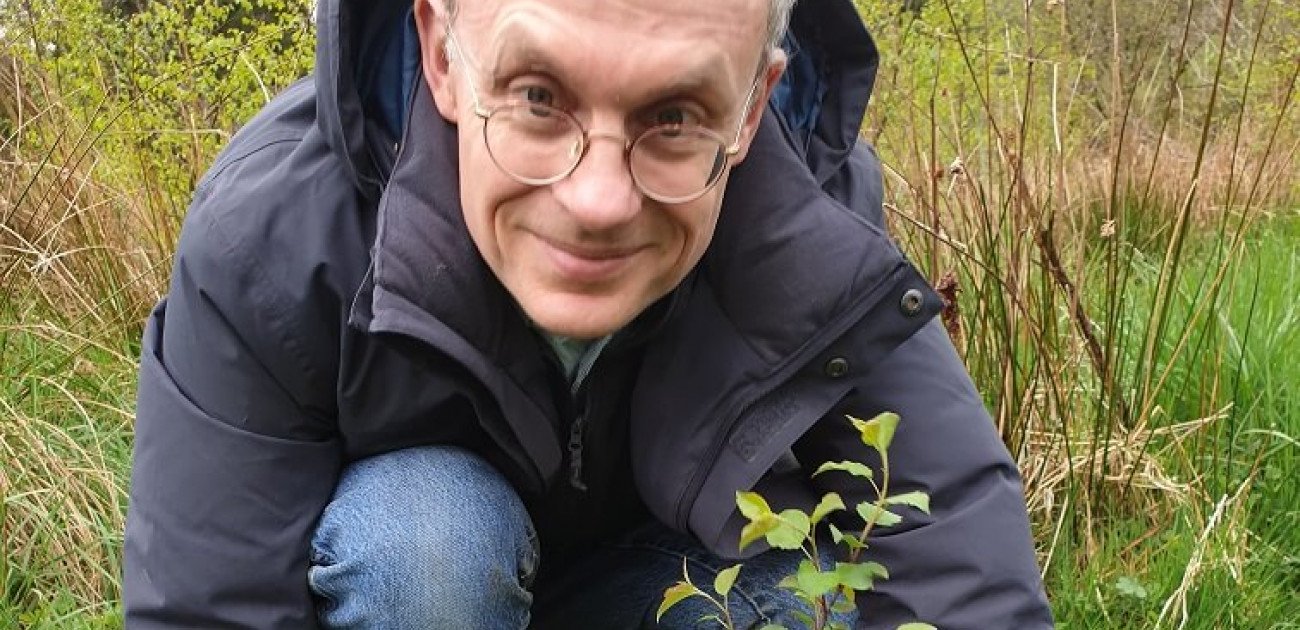
Since we began in 2003, Sophie and I have been committed to running a small business in herbs, spices and flavours, with people and the planet at its core. Since the outset, we have been pioneers in organic and Fairtrade spices, and have operated as a business where everyone is paid the same and everyone has hands-on involvement. We are already carbon net zero in our business, have been zero waste to landfill for over 10 years, so now we have moved to the next stage of a deeper greening of our business.
During 2022, we became BCorp, adding this to our other ethical and environmental certifications and processes – organic, Fairtrade, SEDEX and the BS8555 environmental standard. Whereas it may not have an immediate impact on how we do business, as this is already in our own ethics, it has provided a new spin on the concept of running a business in a good way which is good for our people and our planet.
2022 has been a very difficult year. Sales have fallen by 9% to £1.1 million while costs have gone up significantly, because of general inflationary pressures, Brexit, Covid and the horrendous Russian invasion of Ukraine. The latter has particularly hit energy costs which has then switched people’s focus on costs much more than ethics, so there has been a noticeable reduction in interest in ethical products – we have been here before and trends come and go. Specifically, we have also seen big jumps in the costs of sunflower oil and wheat which have impacted input costs. On the other side, it has been impossible to fully pass on these costs to our customers.
Nevertheless, we have continued to keep to our ethics against these external pressures. Our particular focus is environmental as we are a tiny business and do not have the resources to commit to lots of different projects. For example, we installed rainwater harvesting at 6 Hallikeld Close, put in an electric car charging point at 11 Hallikeld Close and acquired an electric car. Sophie and I did some investigation of where our waste goes, visiting the two key waste locations in North Yorkshire. In terms of our staff, we have ensured that all their training is up-to-date and one member of staff has begun training for procurement qualifications – while this may seem a small thing, she is 10% of our staff.
BCORP SCORES
We applied to BCorp in 2019 but because of the Covid pandemic, the audit process did not commence until 2022, and we received certification in May. Our BCorp Scores were:
| 2021 Scores | Benchmark - Size | |
| Governance | 14.1 | 6.7 |
| Workers | 7.6 | 15.6 |
| Community | 21.7 | 21.8 |
| Environment | 44.1 | 17.6 |
| Customers | 2.1 | 1.8 |
| 2021 Total Score | 89.6 | 81.6 |
Whereas we do want to improve all our scores, the Workers score is our main target for recertification. So, in 2022, we have formally trained everyone in the skills they need, and Ellie has begun learning and taking exams for the professional qualifications of the Chartered Institute of Procurement and Supply (CIPS).
HOW WE DID IN 2022
ENVIRONMENTAL
CARBON
Our objective is to reduce our carbon emissions in line with climate science and a 1.5C target, and to achieve net-zero by 2030 by removing residual CO2e. The aim is to decouple our business from increasing carbon emissions and to provide our customers low carbon intensity products. This begins with being focused on plant products, everything is vegetarian and vegan.
To achieve this, we have calculated how to achieve this and set our first objective to reduce our direct carbon costs to zero by 2025. We define ‘direct carbon costs’ as Scope 1, Scope 2, and controllable Scope 3 emissions (travel, sewerage, waste). We set our carbon targets in 2018, with 2016 as the baseline:
| Plan for 2016 - 2025 | Target in 2025 | 2022 |
| Reduction in direct carbon costs | -100% | -100% |
| Reduction in carbon costs of direct energy usage | -100% | -100% |
| Reduction in net carbon cost | -100% | -100% |
We achieved these targets ahead of schedule in three main ways
- We have installed solar panels on our warehouse units, which contribute about 50% of our energy needs.
- We have switched all our grid-sourced electricity to zero carbon energy suppliers.
- We have a woodland creation project in Wales that is soaking up over 12,000 tonnes of carbon.
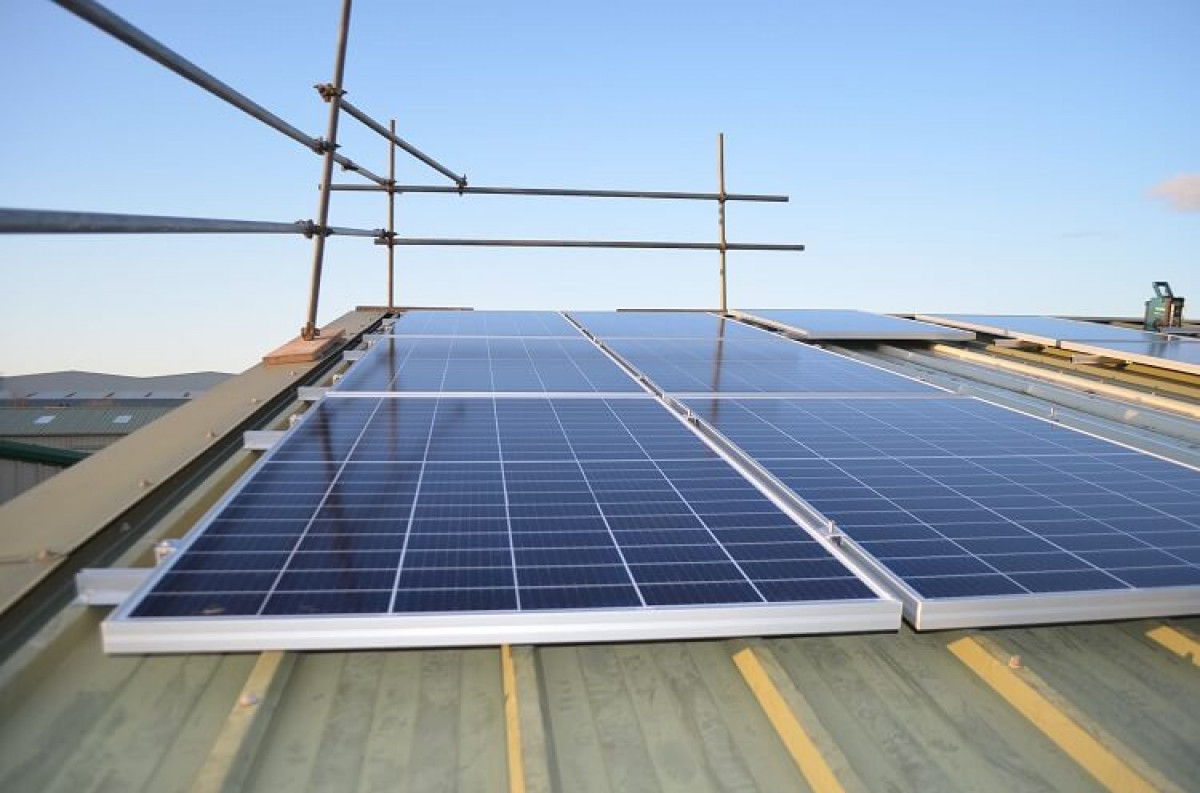
So, in 2022, our scope 1 and Scope 2 emissions were 0 tonnes CO2e, and direct carbon costs were 0 tonnes CO2e, down from about 14 tonnes CO2e in 2016 and 0.3 tonnes in 2021. With an annualized carbon sequestration of 125 tonnes, we have a negative carbon cost of -125 tonnes CO2e in 2022.
Our second objective is to tackle the carbon costs from distribution (our indirect Scope 3 emissions), and this is the new focus of our environmental plans. We have set the target of net-zero by 2030 for Scope 3 emissions by reducing direct carbon costs from deliveries and removing any residual CO2e.
As we rely on transport to get our organic spices to our customers, we have a responsibility to help reduce the carbon footprint of distribution. The main way we keep our carbon intensity down is that we have no distribution vehicles and only use grouped deliveries through couriers and pallet networks, so carbon costs are shared across many deliveries, the distributors optimize their routing and empty vehicles are kept as close to nil as possible.
We have reduced the carbon costs of package deliveries as low as we can, using the Royal Mail and DPD. Royal Mail has the lowest direct carbon footprint at 193 g CO2e per packet, and DPD is net carbon zero per packet; both have electric vehicles within their fleet. The next step is to address our pallets, which will be somewhat trickier.
2023 has not started quite as well as we would have hoped. New maintenance engineers were contracted late 2022, who firstly disconnected the solar panels to upgrade a fuse box for a month, then immediately after installing the new kit, we had an electrical fire in the box, so now we are getting no solar power at all at 6 Hallikeld Close. This is neither great for our pocket nor the environment.
The main target for 2023 is to get the solar system back up and running at 6 Hallikeld Close following the electrical.
Other actions taken: solar tubes and clear corrugated panels fitted to use sunlight (2016); all lighting switched to LED (2019); motion sensors for lighting (2019) with sensitivity reduced (2020); server switched off at weekend (2020); solar battery installed (2021); electric car charging points installed (2022); new hot water boiler installed (2022).
WATER
Our objective is to minimize the use of water within the business, and we have set ourselves the target of reducing water usage by 25% by 2025.
| Plan for 2017 - 2025 | Target in 2025 | 2022 |
| Reduction in water use | -25% | -19% |
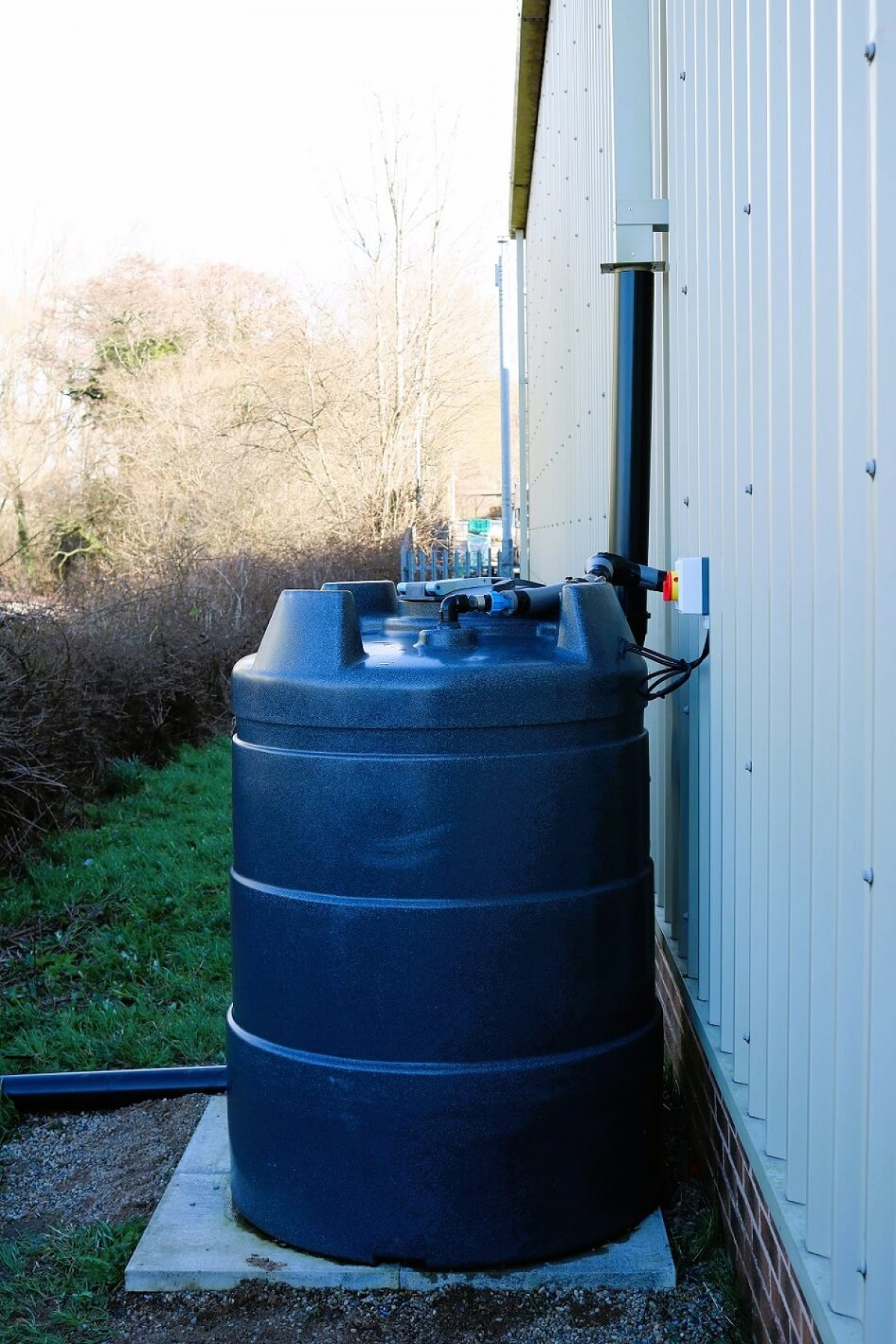
We have installed rainwater harvested water for the toilets in 6 Hallikeld Close and water use has returned to a more normal level. However, nothing quite went as planned and the plumbing was not done properly, so there was a leak which caused quite a lot of damage and some water loss. Water use was down -34% at 101,654 litres (2021: 153,680 litres), down -19% from the 2017 baseline (we use 2017 rather than 2016 as we took on a second building in 2016).
At the woods, we take water very seriously, because one of its key attributes is its ability to filter the water that flows across the land and to reduce flooding by holding back water in the soil and the trees. So, we have a monitoring program to check water quality and dipwells to monitor water movements through the land.
Actions taken: low flush toilets (2016); rainwater harvesting (2021); smaller hot water boiler installed (2022).
BIODIVERSITY
We recognize that there is a biodiversity emergency. Biodiversity is the variety of all living things on Earth and how they fit together in the web of life, bringing oxygen, water, food and countless other benefits.
Scientific studies indicate that UK is one of the world’s most nature-depleted countries, with on average about half its biodiversity left, far below the global average of 75%. It means the UK is the most depleted of the G7 countries and in the bottom 10% globally for biodiversity. Since 1970, there has been on average an almost 70% decline in the populations of mammals, birds, fish, reptiles and amphibians.
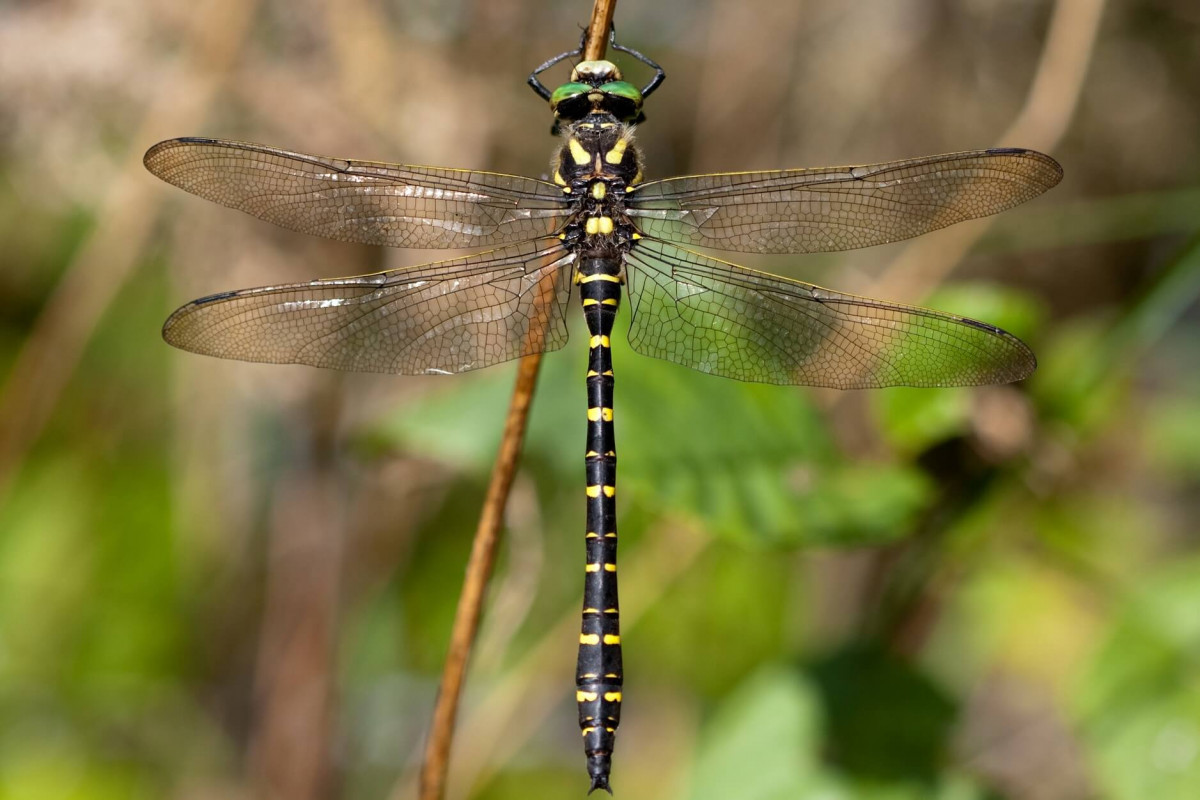
As our products are grown, we recognise that they have a negative impact on biodiversity and that we have a responsibility to minimise our impacts on biodiversity.
Some of this comes through our carbon reduction and water-saving programs, but core to our approach to saving biodiversity is being organic and committed to organic farming and with a focus on vegan products only.
Organic is about working with nature, conserving and improving the soil, being firmly against GMO and removing all agrochemicals from the growing of our products and keeping processing chemicals out of all our products. We are committed to real food, with no nasties and nothing hidden. Over 80% of our products are organic with the remainder pesticide-free plants or additive-free chemicals, like salt, for example.
We are, also, working within our woodland creation project to survey it to have a scientific baseline of its biodiversity so we can plan how best to manage the woodland to make way for nature. While nothing unique or rare has been found, there is a lot of interest for us in our wood: grass snakes, common lizards, toads, frogs, willow warblers and lots of nesting woodland birds, such as woodpeckers, old sessile and pendunculate oaks, old grey willows, which are covered in mosses and lichens, plus ancient woodland indicators. Much of the habitat is rhos pasture which is special to the valleys in South Wales.
In 2023, we have commissioned more surveys, including bryology, botany, trees, fauna, including reptiles, bats, birds and dormice, and are looking at the installation of bat boxes and bird boxes in the woodland.
Actions taken: living roof installed (2019); grass alongside building allowed to grow (2021); biodiversity baseline surveys at wood (2021, 2022). In 2023, we have commissioned more surveys, including bryology, botany, trees, fauna, including reptiles, bats, birds and dormice.
WASTE
We recognize that one of the biggest impacts we have relates to the waste we generate here in our factories and the waste that our products create. Our objective is to reduce the waste here and to reduce the amount of plastic within our business, and we apply the reuse – recycle – energy recovery hierarchy as the basis for decisions on waste.
Our annual waste has reduced by -45% to 6.4 tonnes a year since 2016. 49% is recycled, 51% is waste-to-energy, and 0% to landfill.
In terms of Steenbergs, we are zero waste to landfill, and have been zero waste to landfill since 2010. Originally, the trade waste that was not recycled went to the Netherlands but since 2018 this has travelled 10 miles down the road to the Allerton Park Waste Recovery Plant, operated by Amey, which supplies energy to about 40,000 homes.
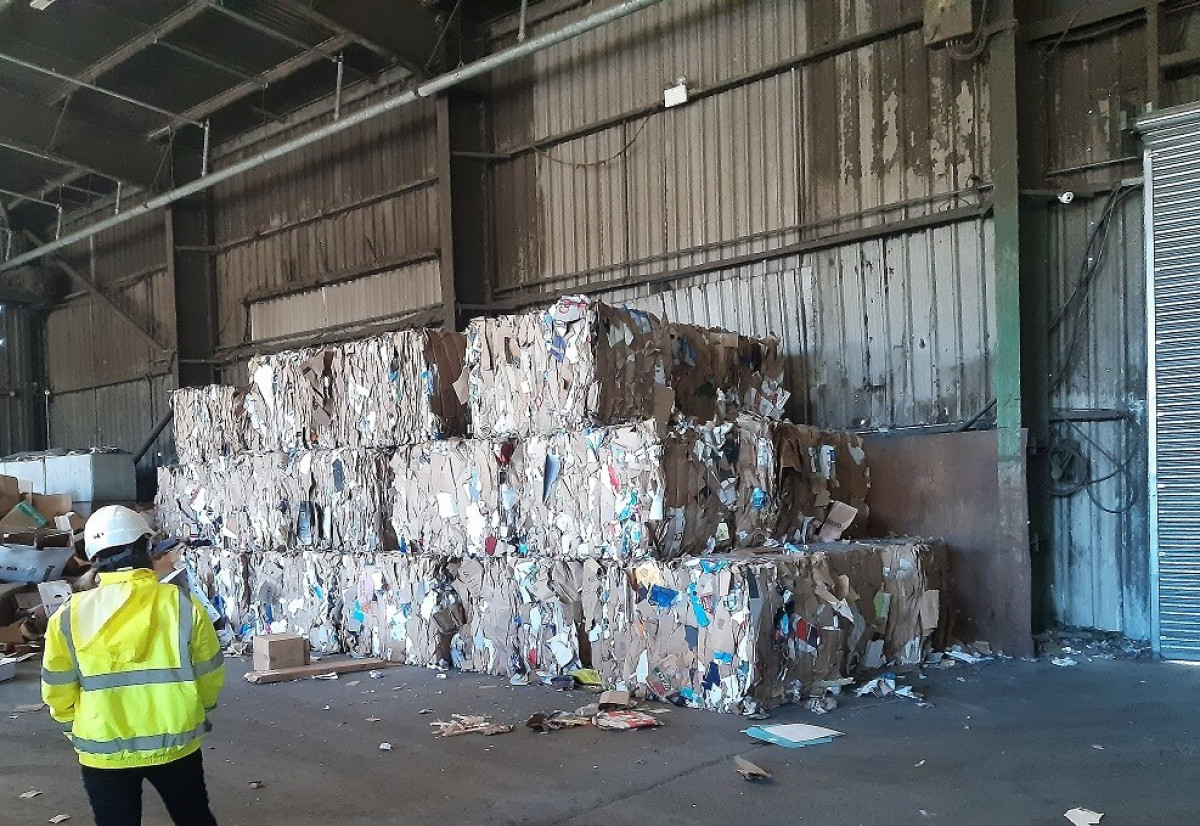
All our internally generated cardboard, paper, glass and metal is recycled by Yorwaste at Harewood Whin. All non-recyclable waste (trade waste) is collected by Yorwaste and used as feedstock for energy at the Allerton Park Waste Recovery Plant. In addition, hair nets, plastic arm covers, plastic film and our employees’ crisp packets, etc. are recycled by Terracycle. In terms of plastic within Steenbergs, plastic sacks and blue drums that have been in contact with spices, etc., go through trade waste, but the clear drums for extracts are washed and then recycled.
Wooden pallets are reused pallets either purchased from a local pallet firm or from deliveries that we receive. Likewise, we reuse a lot of cardboard packaging as protective packaging in delivery boxes to retail customers; we simply break down transit boxes for deliveries and cut these down to convenient shapes and sizes.
In terms of our products and packaging, we use materials that have as little plastic in them as possible, use sustainable materials and include as much recycled materials as possible. We monitor these and seek to reduce the level of virgin materials as far as possible.
The core of our range is packed in glass. The glass has 50 – 60% recycled content. The lids do not contain any recycled content. Both the glass and lids can be reused, or they can be recycled in kerbside recycling.
We provide bulk product in paper bags that are compostable. This does not cover all spices as some of them do require a plastic barrier for protection against water damage from the air, for example garlic and onion powders which are both hygroscopic, so these are packed in plastic bags that cannot be recycled. There is some downside in using paper bags, because the products can become tainted by smells from other products in our factory, stores or homes, but we believe the upside in reducing plastic is greater than this potential downside.
We do pack teas, stuffings and mulled spices products in film. Our core material is a plastic-free film that is home compostable. However, we recognize that some of our retail customers, as well as the UK government, do not agree with us that this makes the most sense for the environment, so when requested we do pack some products in polyethylene or polypropylene film. Ultimately, we think we have taken the right route because using plastic supports the oil industry, which is the root cause of all our problems, and we are constantly having to remove plastic feeds sacks and soft drinks bottles from our wood.
In terms of transit, we pack in corrugated cardboard boxes. The recyclate in these varies from 63 – 100% depending on the specific requirements for the box. We do not use plastic for protective packaging and use a variety of paper-based materials and reused cardboard to prevent breakages. Because we use paper rather than plastic, it does mean we get a few extra breakages in transit than we would like, but we prefer to keep plastic out of our packaging so far as possible.
Our targets for 2023 are to continue to keep on top of the waste chains and reduce waste.
Actions taken: zero waste to landfill (2010 & 2018); removed plastic seal on teas and stuffings (2020); reduced plastic for refills and bulk products and switched to plastic free for most ingredients (2020); provided home compostable plastic-free film as core material for teas, stuffings and mulled spices (2020); switched to recycled plastic ribbons for Old Hamlet fabric bags (2021); visited Harewood Whin and Allerton Park waste centres to audit our waste chain (2022).
WOODLAND CREATION PLAN
We are a very small business, with a small impact on the environment, but we recognize that we have a responsibility in how we run our business both to minimize our impacts on the earth and to provide our customers with the best product in terms of sustainability that they can find. Also, we realize that simply managing the business in an environmentally better, corporate way is not enough for us. So, we have grappled with what more we can do positively to impact the environment.
Our chosen route is to create a new woodland here in the UK. This is a very personal choice and there are many different answers to the problem, but we all must decide – whether, or not, it will be proven correct in the future – because to do nothing is not a credible option.
For us, a new wood answers how we can go beyond reducing our environmental impacts and reduce our dependence on offsets. It addresses carbon costs, air pollution, water pollution, flooding, biodiversity loss and land use changes.
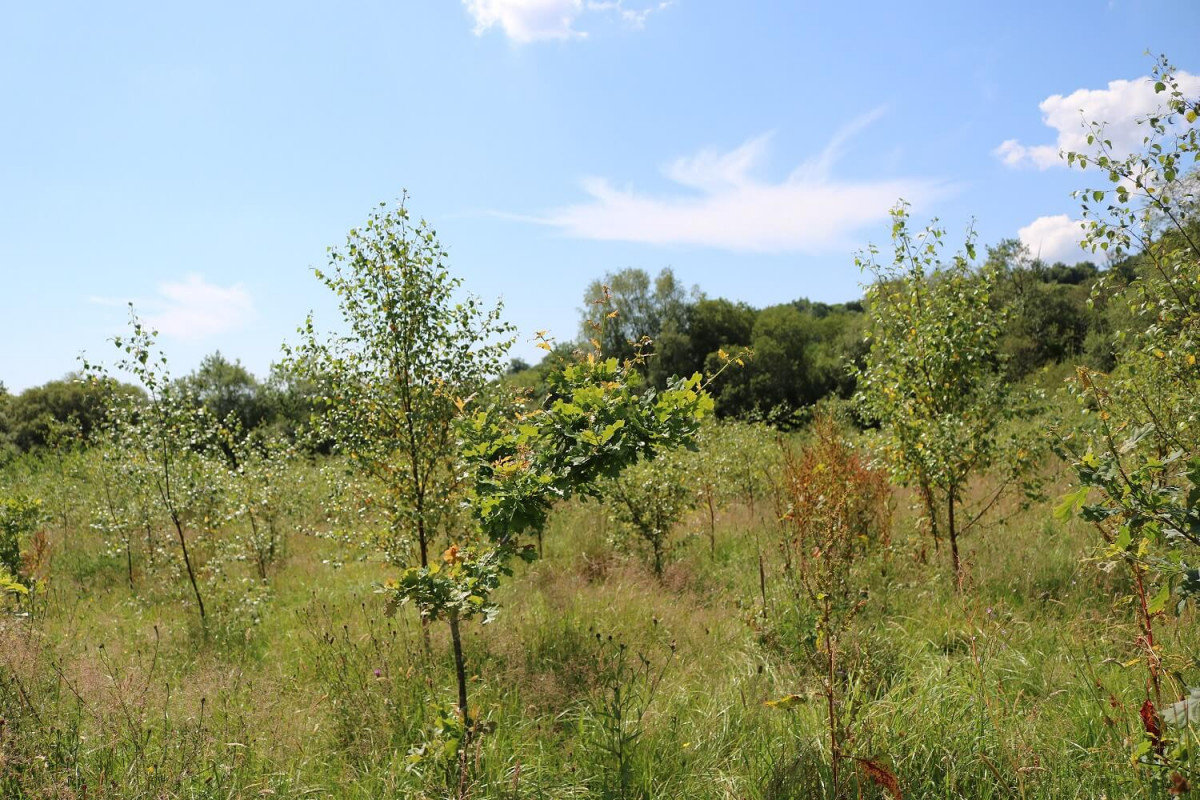
The wood is being created on over 50 acres of former farmland in Carmarthenshire. About half of this has been planted with new trees, almost 30,000 new trees, which will sequester about 12,500 tonnes of carbon dioxide over the 100-year lifetime of the project. In addition, it reverses historic land use changes by reverting pasture for dairy and sheep to woodland, and it keeps coal in the ground as these trees are above coal reserves that almost leak coal from the earth.
In 2022, we planted 50 trees (crack willow, sessile oak, crabapple) and collected and planted over 100 hazel and sessile oak acorns. So far, in 2023, we have planted 150 trees (goat willow, downy birch, hazel, rowan, black poplar, yew) and 50 pendunculate oak acorns that we collected in autumn 2022. All trees are British grown, native trees from certified chains of custody. That’s another 200 tonnes of carbon that will be soaked up over their lifecycles.
The soil is wet and there are five streams that cut across the wood. The trees and plants create a rougher land surface, and the roots interfere with water movement across the surface, so reducing flood risk in the neighbouring valley and town. Also, the leaves clean the air, and the roots filter the water, reducing local air and water pollution.
How it will address biodiversity loss is more complex, but we are patiently working on it by thinking about it and collecting data. In general, the target is to preserve the existing temperate rainforest sections and to extend it into the newer planted areas.
The woodland, itself, comprises older trees in shelterbelts, lone trees, hedges, and areas where the hedges have expanded into the fields. The older trees are a mix of native trees, ranging in age 30 – 200 years old, and include alder, birch, blackthorn, cherry, crabapple, hazel, holly, oak, poplar, rowan, and willow. The newer trees are a mix of native trees, about 5 years old, that includes alder, crack willow, downy birch, elder, field maple, rowan, and sessile oak.
As regards other plants and animals, we are undertaking biodiversity surveys to develop a baseline. So far, we have done habitat and fauna surveys. There is a lot more work to be done, but ancient woodland indicators like bluebells have been found, polypody ferns, mosses and lichens are growing on the older trees, grass snakes, lizards, toads, frogs and willow warblers have been seen. We have, also, set aside 3 acres (6%) to be a meadow.
Our targets for 2023 are to plant 150 trees, sew native wildflower seeds in two of the fields, and order 150 native trees and more wildflower seeds for planting in 2024.
Actions taken: trees planted (2017, 2019, 2021, 2022); biodiversity and other scientific surveys (2020 – 2022).
PEOPLE, COMMUNITIES AND GOVERNANCE
Our targets for People, Communities and Governance are:
- To target the personal development of our staff and support local schools.
- To maintain a good balance between different types of working and people.
- To continue to support local charities through food donations and cash contributions.
- To plant trees, use local business and provide access across our wood through public footpaths.
Firstly, we trained all our staff with the necessary personal qualifications best to carry out their roles. Then, we started Ellie on the road to obtaining professional qualifications in procurement through CIPS, which will be a 5-year commitment by us - we are paying for her training and exams and giving her one paid day a week to do her learning, as well as providing a laptop. While this may not seem much for most businesses, she is 10% of our workforce and has been failed by the education system. Finally, we had 3 students from local schools in Ripon for work experience.
Secondly, in terms of our staffing, everyone is paid the same flat hourly rate. In terms of staffing, 73% are women (8 people) and 27% are men (3 people), split as 64% full-time (7) and 36% part-time (4 people). We work a single shift, 5 days a week, with only limited flexibility on hours as we operate between 8 a.m. and 5 p.m.
Thirdly, we have donated to Menter Cadwraeth Natur Cymru, a local Welsh environmental charity, for their community wildlife garden in Garnant. This charity is a small charity that works in the Amman Valley where our wood is, and we hope our donations can be impactful. Indeed, contractors came in early March 2023 to dig out the ground for a pond, partly helped by our contributions. In addition, we made cash and food donations to the Ripon Foodbank, which works in our local community.
Fourthly, we have planted 200 trees in the last 18 months which will provide a beautiful temperate rainforest and increase biodiversity in the Amman Valley. We have used local contractors to clear brambles from pathways and local environmentalists to conduct surveys (botanical, fauna, water), including commissioning the wildlife report from Menter Cadwraeth Natur Cymru. We are working with them and the local community on making bird and bat boxes that will be put up by volunteers in the wood.
In terms of Governance, we remain a privately-owned business, with 50% woman-owned by Sophie Steenberg. There is no intention to change this ownership structure.
We recognise this is our weakest area and are looking at ways to be more impactful. As a small business, our financial resources are constrained, so the scope to increase financial support is limited but we are looking at ways to increase time offered in community work.
CUSTOMERS
Steenbergs packs organic, Fairtrade plant-based ingredients for smaller retailers and individual consumers which are mostly sold direct.
Our commitment to our customers is to continue with this high level of quality through great tasting products in practicable packaging through maintaining third-party audits of what we do.
So, amongst other systems, Steenbergs’ products continue to be audited by and certified by:
- Organic Food Federation for compliance with organic standards.
- FLO-Cert for compliance with Fairtrade standards.
- KLBD for compliance with kosher standards.
- The Vegan Society for extracts and flower waters.
Against a backdrop of weakened demand for these products, there has been no change ethical and environmental underpinning to our product range during 2022 nor anticipated for 2023.
Steenbergs is currently undergoing a rebranding process that will freshen up the shelf appeal of our products and will incorporate the BCorp branding into the label. This is being rolled out in 2023.
FINAL WORDS
The aims of Sophie and Axel Steenberg are to have a small but profitable business that is fair to people and good for the planet. BCorp forms part of the validation of our commitments to be a decent business.
We can only do this with continued commitment from our customers to appreciate what we are trying to do rather than constantly to bear down on costs, and this remains a big challenge for small businesses like ours.
We hope that we can maintain this approach and that our customers and staff will continue to be involved and interested in our progress to becoming an even better business over the next few years.




